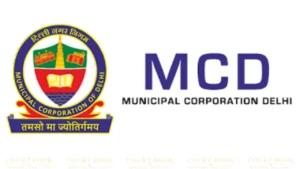In a big win for consumers, the Delhi High Court has ruled that restaurants and hotels cannot force customers to pay a service charge. The court clarified that tipping is entirely voluntary, and businesses cannot add this fee to food bills automatically.
Justice Prathiba M. Singh upheld the Central Consumer Protection Authority’s (CCPA) 2022 guidelines, which banned restaurants from levying service charges “automatically or by default.”
The court dismissed petitions filed by the Federation of Hotels and Restaurant Associations of India (FHRAI) and the National Restaurant Association of India (NRAI). Additionally, both organizations were fined ₹1 lakh each, which must be deposited with the CCPA for consumer welfare.
Read also: Force Majeure Clause in Contracts: Delhi High Court Upholds Arbitral Tribunal's Decision
Here are the five key reasons behind this landmark ruling:
1. Service Charge Collected in an Arbitrary and Coercive Manner
The court found that service charges were often imposed in a misleading way, confusing customers into believing they were government taxes.
“For consumers, the collection of service charge is proving to be a double whammy – they are forced to pay GST on the service charge as well. This position cannot be ignored by the Court.”
Justice Singh noted that service charges were being collected in a “camouflaged and coercive” manner, making them illegal. The practice misleads customers about the actual price of their food, violating Section 2(47) of the Consumer Protection Act, 2019, which defines unfair trade practices.
The court emphasized that tipping must be voluntary.
“Service charge or TIP, as it is commonly called, is a voluntary payment by the customer. It cannot be compulsory or mandatory.”
2. Mandatory Service Charge Is an Unfair Contract
The court held that making service charges compulsory without giving consumers a choice was an unfair contract under Section 2(46)(vi) of the Consumer Protection Act, 2019.
Justice Singh pointed out that many customers do not notice these hidden charges, especially when ordering multiple food items. As a result, they end up paying more than they expected.
Read also:Service Charge Is Voluntary, Cannot Be Made Compulsory on Food Bills: Delhi High Court
The court also ruled that even if a restaurant informs a customer about the charge, it still does not create a valid contract.
“Consumers, at this scale, have little bargaining power against restaurant establishments as a class. The Court is of the opinion that the said class requires to be protected with the intent to secure social and economic justice.”
The ruling emphasized that mandatory service charges harm public interest and impose an unfair financial burden on customers.
3. Misleading Nomenclature Creates Confusion
The court found that the way service charges are labeled on bills is confusing. Many restaurants use terms like "VSC," "SER," "SER CHGS," "S.CHARGE," "SRVCGH", etc., which make customers believe these are government-imposed taxes.
The placement of service charges on bills, right before GST and other taxes, adds to the confusion.
“For any consumer who does not examine the bill thoroughly, the impression given is that the service charge is a component of tax.”
The court clarified that only the government has the authority to impose such levies.
“The service charge, which should be a tip or gratuity, has been converted into a mandatory levy. Private establishments do not have the power to impose or collect such charges.”
To fix this issue, the court suggested that the CCPA allow restaurants to rename service charges as "voluntary contribution," "staff contribution," or "staff welfare fund."
4. Lack of Transparency Violates Consumer Rights
The court observed that restaurants fail to clearly inform consumers about the mandatory nature of service charges. This violates their right to know the exact price of food items before placing an order.
“As soon as restaurants mandate service charge, the price of food increases by 10-15%. This is unfair because consumers are not aware of this additional cost while looking at the menu.”
The court supported the CCPA guidelines, which prohibit restaurants from collecting service charges as a mandatory payment. It noted that businesses are free to adjust their pricing to include service costs but cannot impose an extra charge separately.
5. No Proof That Service Charges Are Part of Labour Agreements
Restaurant bodies argued that service charges were part of staff agreements and helped pay salaries and bonuses. However, the court rejected this claim due to a lack of evidence.
“The submission that service charge is part of labour agreements is without merit. When the Court directed establishments to submit proof, nothing was produced.”
The court ruled that staff wages must come from business revenues, not mandatory charges imposed on customers.
“Salaries and bonuses must be paid from the revenues of the establishment. Service charge cannot be justified on this ground.”
Final Verdict: No More Forced Service Charges!
The Delhi High Court's judgment is a major victory for consumers. Restaurants can no longer force customers to pay service charges, and any attempt to do so is illegal.
If you ever find a restaurant automatically adding a service charge to your bill, you can:
- Refuse to pay it
- Report it to the CCPA
- Raise a complaint under the Consumer Protection Act, 2019















